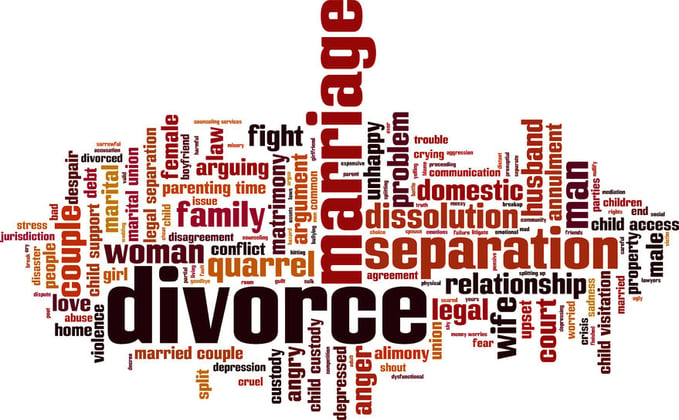
A divorce can be a long hard process that is emotionally and physically draining. Throughout this process you will likely want to express some of this frustration and emotion to your soon to be ex-spouse. However, certain comments uttered during the divorce process often times can be quite damaging. Here are 5 words/phrases to ban from your divorce vocabulary to ensure the best outcome for you.
- Confrontational questions. Questions such as “why are you doing this to me?” and “why are you being so emotional?” places the other party in a defensive and combative posture. This is not effective in helping to have a productive conversation concerning matters related to your divorce.
- Threats. Statements that result in a direct threat of physical violence are an absolute no-no, not only could it substantially damage your case for custody, it also could result in criminal charges. Even threats that do not encompass physical violence are highly counterproductive. Threats such as “I’m going for full custody of the kids” or “I’ll just quit my job, then what will you get” will only serve to escalate tensions and further damage efforts to reach a reasonable settlement.
- Pity. Don’t make statements or comments that suggest you pity your soon to be ex-spouse. First, these are usually condescending statements. Furthermore, pity often carries the connotation that someone is in a less favorable position than you. As you are working through your divorce, you do not want to be indicating to your spouse that they are in a less favorable position, as it may result in them requesting a greater share of the marital assets.
- Blaming. Statements to the effect of “this is all your fault, you’re the one who wanted a divorce.” If your hope is to reach a reasonable settlement short of trial, blaming your spouse for a whole host of issues related to the divorce will only serve to anger them. An angry spouse is much harder to work productively with in an effort to reach a settlement.
- Comments related to the children. One of the most important considerations in any divorce proceeding is the children. Comments hurled at your spouse that directly, and negatively, implicate their parenting skills are a sure fire way to quickly escalate the situation. Overt comments such as “the kids hate you and want to be with me” will certainly create a substantial amount of animosity. However, even seemingly more innocent comments such as “When is the last time you did something with the kids?” can elicit the same reaction.
A divorce is an extremely challenging experience. During this process you will experience very strong emotions, to include frustration. It is critically important that you do not allow these moments of frustration to end in a comment or statement that is extremely unproductive to reaching a reasonable resolution to your divorce. Following these 5 divorce vocabulary tips will allow you to engage productively with your spouse as you move through the divorce process.
For more information related to this article and other like it, continue following Divorce Lawyer on Your Side or contact the Goosmann Law Firm at info@goosmannlaw.com or (712) 226-4000.






Let Us Know What You Thought about this Post.
Put your Comment Below.